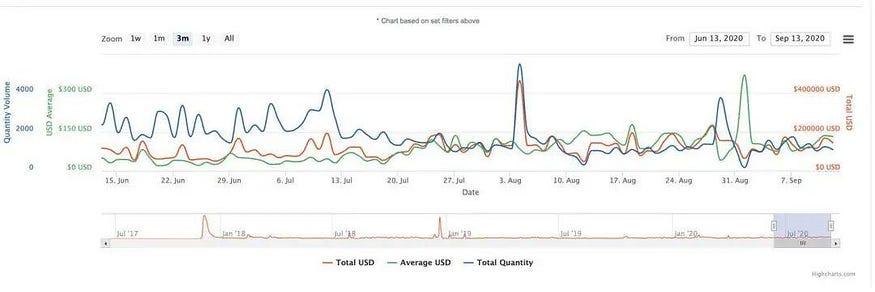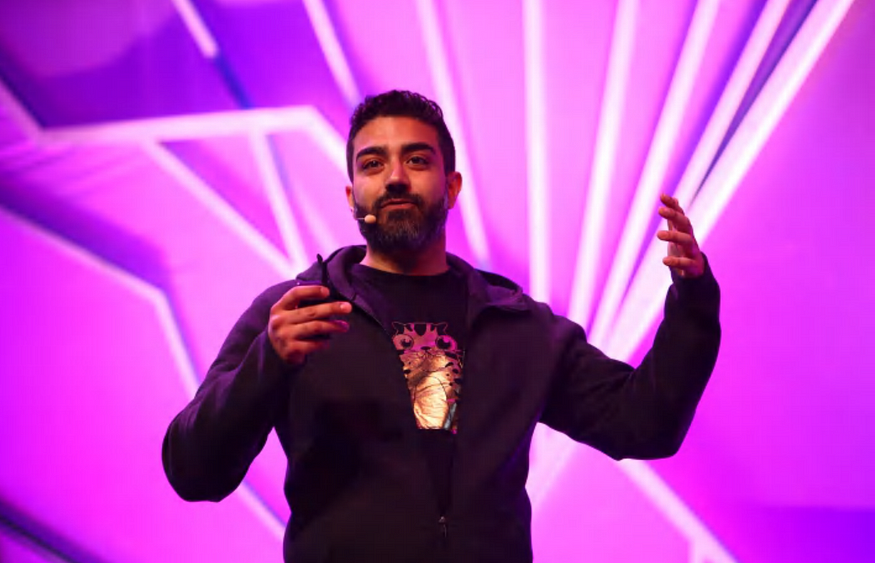An Extension of the DeFi Excitement — NFT

As the crypto world fusses over Bitcoin and other cryptocurrencies, another type of digital asset has quietly been gaining traction. Non-fungible tokens or “NFTs”, have become a focus of global crypto attention over the past few months. A non-fungible token (NFT) is a type of cryptographic token that represents something unique and can be used to create verifiable digital scarcity. Either in value or in the properties of the token itself, one NFT is not equal to any other NFT. Each token is assigned a digital hash that distinguishes it from every other NFT of its kind. NFTs are tokenized versions of digital or real-world assets that function as verifiable proofs of authenticity and ownership within a blockchain network. There is a growing recognition that there is value in being able to prove the ownership and authenticity of intellectual property, such as original artworks and in-game tokens, as well as a representation of real-world assets, such as shares and real estate. In the world of gaming and collectibles, NFTs are also referred to as Digital Collectibles. Exciting use cases for NFTs are cropping up all the time, and they’re even being touted as the future of the gaming industry, the art industry, and even in some cases the real estate business.

Project history chart according to nonfungible.com
NFTs, unlike Bitcoin, which has a supply of 21 million identical coins, have individual characteristics that set them apart. Here are three features that make them different from typical cryptocurrencies:
1. UniqueDeep inside a non‑fungible token, metadata describes a permanent, unalterable record that shows what this NFT represents, almost like the certificate of authenticity that you’d get with a rare painting.
2. RareScarcity is an important ingredient that makes NFTs so attractive. While developers have the freedom to generate an infinite supply of certain assets, they also have the power to limit the number of rare, desirable items in existence.
3. IndivisibleFor the most part, NFTs cannot be split into smaller denominations but can only be bought, sold, and held whole.

Three key reasons why tokenization has the potential to make things even better are as follows:
1. OwnershipBlockchain technology helps enshrine your ownership rights and makes digital assets a heck of a lot easier to move around.
2. TransferableNFTs can be freely traded on specialist markets, meaning coveted assets within a popular game could be used in a totally different title or exchanged for items in a different game, even with a completely different publisher.
3. AuthenticFraud affects everything from art to tickets and collectibles. The blockchains powering NFTs clamp down on counterfeiting and give buyers confidence that they will not be cheated on what they pay for.

Dapper Labs CEO Roham Gharegozlou(Collision Conf/Flickr Creative Commons)
NFTs are now being developed across multiple industries. Following DeFi’s footsteps, projects in the NFT world have also begun issuing governance tokens, a trend that may help the industry gain traction as it did for DeFi in the liquidity space. The project manager at DappRadar, Ilya Abugov, said, “There is more hype around NFTs right now. To some extent, it’s an extension of the DeFi excitement. We have seen with DeFi that once a trend starts it creates a snowball effect.” The first applications are across the Gaming, Artwork, and Collectibles industries; however, Virtual and Augmented Reality, Real Estate, Event Ticketing, Brand Licensing, and Tokenizing of real-world assets are also showing promise. Nike even applied for an NFT patent back in 2019. These projects stand out because there is no need for their users to interact with the underlying blockchain technology but can still benefit greatly from the tech, making such projects ripe for mainstream adoption. Storing ownership and identification data on the blockchain would increase data integrity and privacy, while easy, trustless transfers and management of these assets could reduce friction in trade and the global economy. Eventually, NFTs open the door to potentially digitizing all intellectual property rights and tokenizing all assets. Enough signs show that the crypto art market will pretty soon be shaped just like the traditional contemporary market.